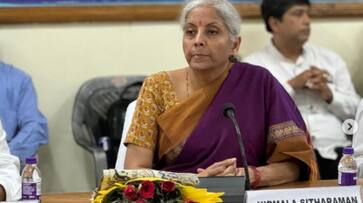The 53rd GST Council meeting led by Finance Minister Nirmala Sitharaman focused on simplifying taxation, exemptions, and enhancing compliance measures.
The 53rd GST Council meeting, chaired by Union Finance Minister Nirmala Sitharaman, concluded with key recommendations on taxation and exemptions. These decisions cover a range of topics from GST rates on solar cookers to measures against fake invoicing.
One significant proposal is the intention to include petrol and diesel under GST, though states will decide the applicable rates for these fuels. This move aims to streamline taxation across different energy sources.
- The council proposed a uniform GST rate of 12% for all solar cookers, regardless of their specific energy source. This simplification is part of efforts to standardize tax rates for such environmentally friendly products.
- In a boost for travelers, services provided by Indian Railways to the general public—such as platform tickets, retiring rooms, waiting rooms, cloakroom services, and battery-operated car services—will now be exempt from GST. This exemption aims to reduce costs for railway passengers.
- Further exemptions include hostels for students located outside educational institutions, which will also be exempt from GST. This measure aims to support educational access and affordability.
- Additionally, the council decided that all milk cans will attract a uniform GST rate of 12%, based on their standard shape rather than the material used in their construction. This simplification avoids varying tax treatments based on construction materials.
- Similarly, a 12% GST rate will apply uniformly to all carton boxes and cases, whether made of corrugated or non-corrugated paper. This measure aims to provide clarity and consistency in GST application.
- The council also set a 12% GST rate for all types of sprinklers, including fire water sprinklers, aligning tax treatment across these essential devices.
- To combat fraudulent activities, biometric-based Aadhaar authentication will be implemented nationwide to verify input tax credit claims and prevent misuse of fake invoices.
In terms of compliance relief, the deadline for small taxpayers to submit GSTR 4 forms has been extended to June 30 from April 30. Additionally, interest and penalties for demand notices issued under Section 73 of the GST Act will be waived, except in cases involving fraud, suppression, or misstatements.
- Lastly, the council recommended monetary limits for filing appeals: Rs 20 lakh for the GST appellate tribunal, Rs 1 crore for the High Court, and Rs 2 crore for the Supreme Court. These limits aim to streamline the appeals process and manage workload effectively.
Overall, these decisions reflect ongoing efforts to simplify GST regulations, promote transparency, and support economic activities across various sectors.
Last Updated Jul 14, 2024, 12:00 PM IST









![Salman Khan sets stage on fire for Anant Ambani, Radhika Merchant pre-wedding festivities [WATCH] ATG](https://static-gi.asianetnews.com/images/01hr1hh8y86gvb4kbqgnyhc0w0/whatsapp-image-2024-03-03-at-12-24-37-pm_100x60xt.jpg)
![Pregnant Deepika Padukone dances with Ranveer Singh at Anant Ambani, Radhika Merchant pre-wedding bash [WATCH] ATG](https://static-gi.asianetnews.com/images/01hr1ffyd3nzqzgm6ba0k87vr8/whatsapp-image-2024-03-03-at-11-45-35-am_100x60xt.jpg)


